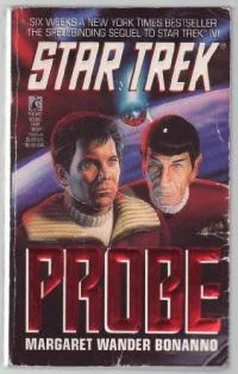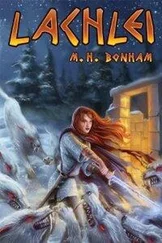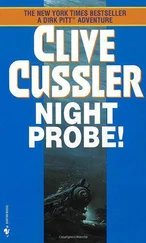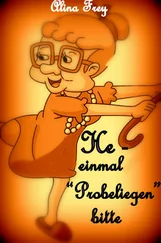Margeret Bonanno - Probe
Здесь есть возможность читать онлайн «Margeret Bonanno - Probe» весь текст электронной книги совершенно бесплатно (целиком полную версию без сокращений). В некоторых случаях можно слушать аудио, скачать через торрент в формате fb2 и присутствует краткое содержание. Жанр: Космическая фантастика, на английском языке. Описание произведения, (предисловие) а так же отзывы посетителей доступны на портале библиотеки ЛибКат.
- Название:Probe
- Автор:
- Жанр:
- Год:неизвестен
- ISBN:нет данных
- Рейтинг книги:4 / 5. Голосов: 1
-
Избранное:Добавить в избранное
- Отзывы:
-
Ваша оценка:
- 80
- 1
- 2
- 3
- 4
- 5
Probe: краткое содержание, описание и аннотация
Предлагаем к чтению аннотацию, описание, краткое содержание или предисловие (зависит от того, что написал сам автор книги «Probe»). Если вы не нашли необходимую информацию о книге — напишите в комментариях, мы постараемся отыскать её.
Probe — читать онлайн бесплатно полную книгу (весь текст) целиком
Ниже представлен текст книги, разбитый по страницам. Система сохранения места последней прочитанной страницы, позволяет с удобством читать онлайн бесплатно книгу «Probe», без необходимости каждый раз заново искать на чём Вы остановились. Поставьте закладку, и сможете в любой момент перейти на страницу, на которой закончили чтение.
Интервал:
Закладка:
"The Neutral Zone," Riley said, his eyes widening as he read off the navigational coordinate grid floating alongside the globe. "Why so far out, sir?"
"So they can have us all for breakfast," McCoy said
sarcastically. "I don't know about you all, but the odor of rat is getting stronger all the time."
Admiral Cartwright turned to face McCoy directly. "The odor of what, Doctor?"
"Commander McCoy," Kirk said hastily, glaring at his chief medical officer, "was simply reiterating his suspicion of the Romulans' motives."
"Damn straight," McCoy added.
"Regardless of the Romulans' reasoning, gentlemen," Spock volunteered, "this is a remarkable opportunity. Temaris Four is an archaeological site of great significance to both the Romulans and ourselves, but the fact that it lies within the Neutral Zone has kept it untouched by either side for a hundred years. For the Romulans to suggest such a world as the site of a meeting with the Federation, and for the Federation to agree, can be seen as, at the very least, an important symbolic gesture on both sides."
"Exactly, Mr. Spock," the President said. "However, the gesture appears to be more than symbolic. The Romulans are proposing, as part of the conference, at least the beginnings of a joint excavation. Or perhaps it should be called reexcavation. I understand the remains of an entire city were uncovered before the war forced everyone out."
"That is correct, Admiral, and it would indeed be more than a gesture, particularly if work was allowed to continue after the conclusion of the conference." Though Spock's voice was as even as always, it was obvious to Kirk and McCoy that he was as close to being openly enthusiastic as they had ever seen him. "The Temaris ruins are of great historical significance, Captain," he went on. "According to the records of the
original expedition, the city they uncovered was the single largest known remnant of the Erisian Ascendancy, as well as the most recent and therefore perhaps the best preserved. The Erisians themselves are also the object of intense debate and speculation. Several theories have been advanced as to their point of origin, and the reason for their apparent exodus from this part of the galaxy. Some have even conjectured that they did not leave at all but became the distant ancestors of Earthmen, or of Vulcans and Romulans."
McCoy snorted. "Every species this side of Antares has tried to claim the Erisians as kin or mentor at one time or another. It's been kind of hard to prove one way or the other, though, since no one's ever found so much as a toe bone, not even any statues or-"
"Thank you, gentlemen," Cartwright broke in impatiently. "The point is, this joint excavation, whether it lasts an hour or a century, brings us to another of the Romulans' `peculiar' requests."
"This whole setup is `peculiar,"' McCoy said, shaking his head, "and that's giving them the benefit of a hell of a lot of doubt, if you ask me. The next thing you know, they'll be trying to tell us what archaeologists to send."
Cartwright frowned, his eyes betraying a flicker of suspicion as he darted a glance at the President. "As a matter of fact," the admiral continued, "that is precisely what they are doing, at least insofar as the team leader is concerned."
"You're joking!" McCoy almost exploded before a dark glance from Kirk silenced him. Riley's face betrayed surprise, but he remained diplomatically silent.
"Dr. McCoy's reaction may have been. . intemperate, Admiral," Kirk said, "but I can't disagree with the thought. Vetoing a particular ambassador I can
understand, but this- How is it the Romulans even know of a specific Federation archaeologist?"
"They have had dealings with her before," the President put in, "exceedingly unpleasant dealings. They say that their `request'-and this, unlike the matter of Sarek's absence, is not a demand-is an attempt on their part-and here I quote the Committee directly`to in some small way redress her legitimate grievance against those who once acted against her and her colleagues in the name of the Romulan Empire.' There was no mention of the symbolism that will attach itself to the situation, but they are obviously aware of it and will, I am sure, exploit it to the hilt."
"So who is it?" Kirk asked. "And has she agreed to be a symbol?"
"Her name is Dr. Audrea Benar. As to whether or not she will agree, that is what Commander Uhura has been dispatched to learn."
Uhura paused beneath the porticoed facade of Lincoln Center's Philharmonic Hall, realizing yet again that she did not really want to do what she was about to do. She was comforted only slightly by the further realization that, if she had not volunteered, someone else would be here in her stead, someone who would do the deed in a far more businesslike way. Perhaps Admiral Cartwright, perhaps even the President himself. Dr. Benar, faced with a straightforward, albeit apologetic, request from the likes of either of them, would be left with little choice, whereas, with a lowly commander making the request, offering to take the heat, even offering herself up as a buffer if the archaeologist was inclined to refuse. .
Bracing herself, Uhura went inside, hurried purpose-
fully through the chandeliered elegance of the ornate lobby, and pushed through the muffling doors into the concert hall. Abruptly, she was enveloped in the barely controlled chaos that was the sound of a musicians' rehearsal in progress. Beethoven's Seventh, she realized a moment later as her ears adjusted to the hall's acoustics, which of course had been thrown completely out of kilter by the total absence of a suitably sound-absorbent audience. The first movement. Halting just inside the doors, at the top of the plushly carpeted aisle that led down to the airy blondwood stage where the entire string section was having at it, she listened.
There were, Uhura thought with sudden warmth, some things that never went out of style, and the works of Ludwig van Beethoven, performed live, were certainly among those things. After more than four centuries, not a year went by that did not see a Beethoven festival somewhere, if not here, then in Salzburg or Vienna, Tokyo or Sydney, not to mention the off=world festivals, some featuring instruments and arrangements that the composer likely never even dreamed of. It was hard to believe there had ever been a time-although, according to the history books, there had indeed been such a time-when the computerized descendants of Moog, with their prerecorded perfection, had been so in vogue that live performances, not only of Beethoven but of anyone, new or old, had been in danger of extinction. In the days-the dark days, to Uhura's mind-before the twenty-second-century renaissance of live performance, assembling enough professional musicians for a full classical orchestra such as this one would have been virtually impossible.
Watching the musicians, Uhura found herself marveling at the coordination, the discipline that was needed to
weld together all those dozens of disparate individuals and sounds. She knew music, even considered herself a fair to middling performer, but only as a soloist, only as a hobbyist. As a member of a professional ensemble, particularly one of this size and complexity, she would be hopelessly out of her depth.
Finally there was silence, punctuated by a gentle but authoritative tap of a baton as the slender female figure at the podium expressed her dissatisfaction — Uhura could not imagine why-at what she had just heard.
"Cellos," she began in a low, clear contralto that carried to where Uhura stood. "I'm aware of the arduous tempi in this section, but I assure you they can be achieved. May I remind you that the notation for the movement reads poco sostenuto vivace. By no definition I understand could your present rendition be construed as `vivace."'
Читать дальшеИнтервал:
Закладка:
Похожие книги на «Probe»
Представляем Вашему вниманию похожие книги на «Probe» списком для выбора. Мы отобрали схожую по названию и смыслу литературу в надежде предоставить читателям больше вариантов отыскать новые, интересные, ещё непрочитанные произведения.
Обсуждение, отзывы о книге «Probe» и просто собственные мнения читателей. Оставьте ваши комментарии, напишите, что Вы думаете о произведении, его смысле или главных героях. Укажите что конкретно понравилось, а что нет, и почему Вы так считаете.












